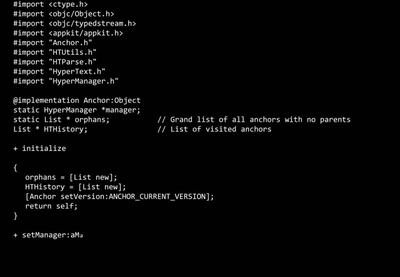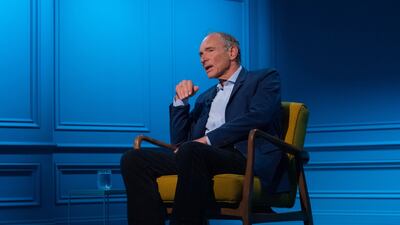The world owes a great deal to Sir Tim Berners-Lee. Not only did he create the World Wide Web but he gave it to us all for nothing.
But, more than three decades after he used hypertext links to transmit research papers at his research institute in Switzerland does the “father of the internet” regret his generosity? Has his legacy been hijacked?
Certainly, Sir Tim cannot, does not, have second thoughts about his invention. After all, it has transformed our lives in ways we could not possibly imagine and in others that are yet to be realised.
Nevertheless, this recent headline from CNN was arresting: “Inventor of the World Wide Web wants us to reclaim our data from tech giants.”
It described a platform Sir Tim has started, called Inrupt, which allows users to keep their data in one central location and determine which people and applications can access it.
“I think the public has been concerned about privacy — the fact that these platforms have a huge amount of data, and they abuse it,” said Sir Tim. “But I think what they’re missing sometimes is the lack of empowerment. You need to get back to a situation where you have autonomy, you have control of all your data.”
A flaw in idealism

To which there is one response: you may be promoting an alternative, Sir Tim, but where the power, reach and financial might of the behemoths Google, Apple, Facebook and Amazon are concerned the genie left the bottle a long time ago and, despite something of an awakening towards the end of your career, it is not going back.
Sir Tim is a genius who deserves nothing but praise for his creation. At the opening ceremony of the London Olympics, one of the loudest cheers, on a night of loud cheers, was when he was introduced to the crowd.
He would not be alone, though, in possessing a flaw. In his case it is the idealism of an academic.
In vesting his faith in the capacity of his fellow man to always do right, to not exploit and dominate, he effectively ceded authority over his invention to those who did just that, who possessed the technology to harvest its potential and ability to profit accordingly.
Trouble at the W3C

Sir Tim set up an organisation in 1994 to set operating standards, to fix the architecture of the web. It’s called the World Wide Web Consortium or W3C. And they’re the people who determine the use of initials like www. and URL and HTTP and others.
Adhering to Sir Tim’s principles, the non-profit body was attached to a serious place of study, in this case the Massachusetts Institute of Technology.
It was run along open, egalitarian lines, relying on contributions from W3C members, many of which were tech and online data collection, advertising and marketing companies seconding their staff to act as representatives and sit on W3C’s internal advisory groups and play a part in the discussions and W3C proceedings.
Together with full-time W3C staff and interested members of the public, with Sir Tim as their director, they would work to ensure the web operated uniformly.
Alas, it was precisely this democratic approach and how W3C was structured and worked that meant that it was ripe for influencing by the tech giants, and in time, this is what occurred.
Berners-Lee steps down

Now comes news of what may be final proof that moneymaking zeal has triumphed over Sir Tim’s cerebral detachment, seizing the web and turning it into one mega-profits resource for a select band. Sir Tim, 67, is retiring from W3C and the campus-based standards body is becoming a corporation, based in Delaware.
With Sir Tim at the helm, W3C did at least maintain the appearance of independence. It seems, though, that he is not to be replaced, there will be no director in charge. The thought that another serious scientist, similarly without association with Big Tech, might step into Sir Tim’s shoes is wishful thinking.
It’s a turn of events that is causing consternation among some close observers. Leading London competition and regulatory lawyer Tim Cowen of Preiskel & Co has posted his views on the firm’s website.
“The director is the geek-in-chief. Disputes about what goes into HTTP standards and what doesn’t — whether cookies or different domains will work as well as others — what the role of the browser is — and how mobile phones communicate with websites — are currently matters to be settled by the director of the W3C. What functions sit in the browser and what exist elsewhere depends on W3C web standards. This is at least how things are supposed to work.”
Mr Cowen even speculates that Sir Tim is not going of his own accord. “Is this the time he has chosen to exit stage left? Or has he been usurped and replaced? The sort of issue that would previously be adjudicated by Sir Tim as director, is cited by Mr Cowen.
A dispute arose at the W3C this year as to whether browsers should contain embedded digital wallets. The development of the digital wallet promises to make Apple and Google even more powerful and wealthy as it does away with the need for credit cards.
The W3C group working on the standard was supported by Apple and Google. Despite objections from those who believe embedding the wallet gives too much clout to Apple and Google, and they have plenty enough as it is, the W3C’s Advisory Council responsible for addressing the complaints decided to make no substantive changes to the proposals. It went through, when in the past the argument would have gone to Sir Tim for a ruling.
A tragic twist

So, browsers can now become digital wallets. Writes Mr Cowen: “This standard is now being widely implemented. Escalation to Tim didn’t happen. The browser owners will be happy. Those running competing payment systems, not so much.”
W3C’s switch to becoming a corporation and moving to Delaware, a name associated with US companies that wish to keep their financial affairs secret and avoid paying tax, is also setting off alarm bells.
“Some might find that idea in itself a little chilling,” says Mr Cowen. “Companies are commercial: the W3C was a public interest organisation pursuing its mission for the good of mankind — right? Maybe. Maybe the members of the new corporate entity will have the public interest at heart and stop further changes that benefit the major platforms at the expense of others.”
Or, he writes, “Maybe the major platforms are now so commercially important to all the business activists of all companies that any company representative can’t be truly independent? Their duty will in the future be to the company, and the company’s best interest may be to increase the functions in the browser to the benefit of the two biggest players. Maybe this has been the plan all along? If so, maybe it’s time for the WWW to be saved from the W3C?”
It would surely be a tragedy, if in Sir Tim's desire to benefit everyone he ended up favouring just a handful of corporations.


